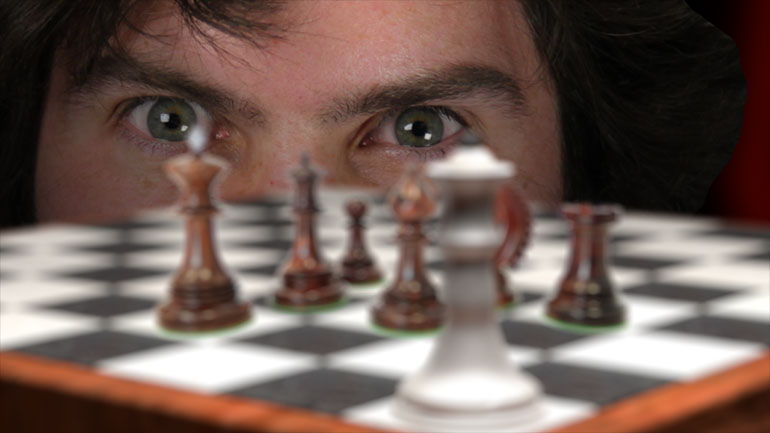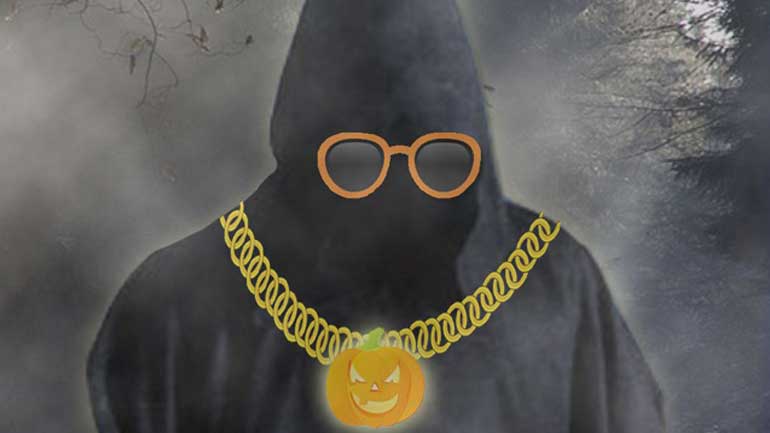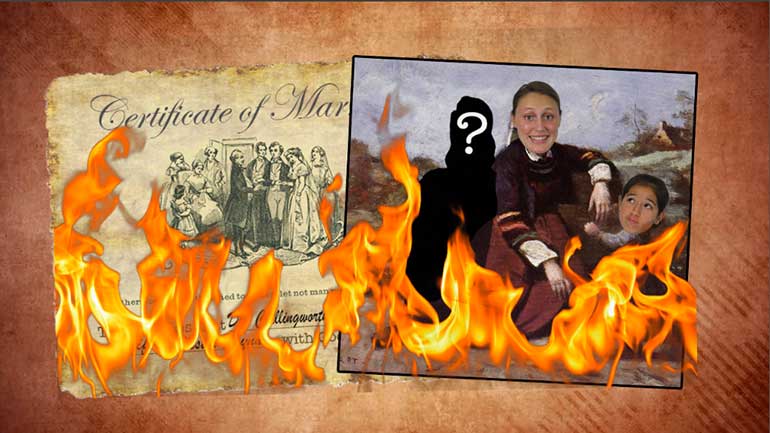ShmoopTube
Where Monty Python meets your 10th grade teacher.
Search Thousands of Shmoop Videos
The Supernatural Videos 22 videos
Aren't midsummer night dreams the worst? You wake up all sweaty and gross, and for a minute there, you can't even remember where you are. And also,...
Written in Anglo-Saxon, or Old English, sometime between the 8th and 11th centuries, Beowulf is an epic poem that reflects the early medieval warri...
If you suddenly came into a bunch of money, you'd give it all away, right? Yeah, we figured.
All About Beowulf as a Translated Piece of Literature 6775 Views
Share It!
Description:
Old English is just English, right? Can’t be more difficult than reading Shakespeare, right? Hah. Yeah...no. Click on the video to find why translating Beowulf would give Bard himself a migraine.
Transcript
- 00:01
We speak student!
- 00:04
Beowulf a la Shmoop
- 00:06
Translation
- 00:09
So, translation is something that assaults ritual
- 00:13
literary work even today in various forms.
Full Transcript
- 00:16
Translating from Old English
- 00:18
to Modern English - you lose something.
- 00:20
You must, just by --
- 00:21
Almost by definition of how translations work.
- 00:23
But talk us through what's going on here.
- 00:26
Why is translating Beowulf so difficult?
- 00:29
Other than, you know, the basically Klingon that it was written in.
- 00:32
The first thing to think about is,
- 00:34
like you said, we're going from Old English
- 00:36
to Modern English.
- 00:37
And English did not go straight
- 00:39
from Old English to Modern English.
- 00:41
It went through tons and tons of variations.
- 00:44
For example, you've probably read Shakespeare.
- 00:47
Pick up Shakespeare - it doesn't sound
- 00:49
like Old English and it doesn't sound like Modern English.
- 00:52
So we're not just translating from,
- 00:54
you know, one language -
- 00:55
one type of English to another.
- 00:57
We're translating - skipping over so many changes
- 01:00
that came about.
- 01:01
So that's the first reason it's tough.
- 01:03
And even if you just look at the characters,
- 01:05
it really is a completely different language.
- 01:07
But translation in general is a big issue.
- 01:11
When you're reading something like Beowulf,
- 01:12
you have to remember that you are not
- 01:14
reading what was originally written.
- 01:16
Any translator is 100 percent biased.
- 01:19
You can not read a translation without
- 01:21
getting a sense for what that translator
- 01:23
thought of the book.
- 01:24
So, a few things that a translator might do -
- 01:26
One is they might try to create a specific mood or tone
- 01:29
with their writing.
- 01:30
You know, someone might try and turn Beowulf
- 01:32
into a super crazy adventure fighting story,
- 01:36
and another might try to
- 01:38
make Beowulf a super sympathetic character.
- 01:41
Or even make Grendel a sympathetic character.
- 01:43
So the words that are chosen
- 01:45
to translate the Old English --
- 01:47
And, you know, you have a bunch of options.
- 01:49
Say, someone might translate the word "glory" as "prowess"
- 01:54
or "courage" or "bravery." So, heroism.
- 01:58
So you have so many choices of what word to use
- 02:00
to translate a specific Old English word
- 02:02
that you just get a totally different
- 02:04
mood or tone depending on
- 02:06
what words you choose.
- 02:07
Other things to remember -
- 02:08
Translators have to decide
- 02:10
do they want to make the language
- 02:12
sound like it sounded?
- 02:14
So, Old English is a very alliterative language,
- 02:17
which means there's a lot of repeated consonants.
- 02:20
Lots of words might start with "T" in a row,
- 02:23
or something like that.
- 02:25
Does the English translator want to maintain that?
- 02:28
Or are they more worried about maintaining the meaning?
- 02:31
And it's very hard to do both.
- 02:33
So usually a translator will choose one or the other -
- 02:35
sound or meaning.
- 02:36
And then the final question that translators often ask
- 02:39
is about authenticity.
- 02:40
Do they want to translate
- 02:42
into concepts that modern readers can understand?
- 02:47
If there's, say, a concept
- 02:49
that existed in the fifth century or the eight century
- 02:53
when it was told, but doesn't exist anymore,
- 02:55
do they wanna kind of translate
- 02:57
that culturally into something that
- 02:59
we can understand?
- 03:00
Or do they wanna use the Old English concept?
- 03:04
We might not understand what it means,
- 03:05
but it's more authentic that way.
- 03:07
And that can be anything from, you know,
- 03:09
a specific tool that Hrothgar is using
- 03:12
that we wouldn't know what the word meant,
- 03:14
but it would be more authentic if they used that exact same thing.
- 03:18
So, anyway, tons of stuff at play here when thinking about translations.
- 03:22
Wow, brutal.
- 03:23
Okay, that's about all we know about translating Beowulf.
- 03:27
Why would Beowulf be difficult to translate?
- 03:30
Why is it important to keep in mind that a work is translated while you're reading it?
- 03:35
What could potentially be lost or gained in a translation?
- 03:43
You lose something. You must.
Related Videos
This video defines utopias and dystopias, and investigates how a utopia might become a dystopia. Can a seemingly perfect world actually be a dystop...
They say that honesty is the best policy, but Jack lies about his identity and still gets the girl. Does that mean we should all lie to get what we...
Ever wish you could remember everything that you ever studied? How about everything that everyone has ever studied? Yeah, pretty sure our brains ju...
Ralph Ellison's Invisible Man is an American classic. Hope you're not expecting any exciting shower scenes though. It's not that kind of book.
Do not go gentle into that good night. In fact, if it's past your curfew, don't go at all into that good night. You just stay in your good bed and...


























